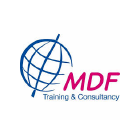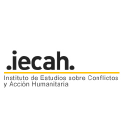WORKING WITH DG ECHO AS AN NGO PARTNER | FPA 2014 - 2020
ELIGIBILITY OF COSTS
Committed costs are those costs for which a legal obligation to pay exists (e.g. a purchase order / a signed contract etc). A cost is incurred when the related services and works are performed, or, in the case of supplies, the supplies have been used for the purposes of the Action.
Article 8 of the General Conditions requires, among the eligibility conditions, that the costs are “incurred during the eligibility period”. This means that only the costs that are related to activities performed or to supplies used during the eligibility period are eligible. According to this principle the date on which the related costs were committed is irrelevant.
A “doubtful debt” is a claim concerning a litigation/dispute which is still on-going between a third party (e.g. supplier) and the Partner. An example of a “doubtful debt” may be a case when a supplier claims a payment of a contract for delivery of goods against the partner, but the partner disputes proper or timely delivery of goods.
If the Partner contributes staff that it pays itself, this is not considered as an in-kind contribution. If the Partner contributes goods that it purchased beforehand, these can be considered as stocks and repaid at historical purchase price.
As stated in the Article 8.1 of the General Conditions , costs related to the preparation of the final report shall be deemed eligible even if incurred after the eligibility period of the Action.
Therefore, if linked to the preparation of the final report, office running costs may be eligible, provided that they are reasonable, justified and compliant with the principle of sound financial management, in particular regarding economy and efficiency.
These simplified costs are an option foreseen in the EU Financial Regulation and may be considered eligible if DG ECHO and the Partner agree that the grant takes the form of reimbursement of flat rates, lump sums etc. In such cases the Specific Grant Agreement shall specify the conditions for the identification and the verifiability of the declared amounts. This will be done on a case-by-case basis, and on the condition of an ex post check of the partner’s accounting procedures.
Yes, the costs related to these activities are the only costs that can be considered eligible even if incurred after the eligibility period. This means that all the other activities have to be finalized within the end of the eligibility period of the Action (GC Art 8.1), or alternatively, the partner can request a no-cost extension.
AMENDMENT | FINANCIAL STATEMENT | FINAL FINANCIAL REPORT
Yes, the cost may be eligible if it is part of the overall budget of the Action presented in the Financial Statement at the latest with the Final Report. However, this does not mean that all individual costs must be visible in the Financial Statement, it suffices that they are covered within a given cost category. The final check of whether a cost was covered by the budget of the Action can only be done through an audit.
Interests owed are not considered eligible as per Article 8.4 of the General Conditions.
It is possible to charge a depreciation rate related to the local office building. This is different from a mortgage loan, which is not eligible under the General Conditions.
The only activities that are eligible after the end of the implementation period are: the preparation of the Final Report, post-distribution monitoring and final evaluation/audit. Therefore, costs related to post-quality check activities are not eligible if performed after the end of the implementation period. To make sure that these costs are eligible, the partner may consider them as activities of the action, to be performed during the implementation period.
Costs related to operational leasing (which, similar to rental, does not include interest) are eligible as per Article 8.2 (c) of the General Conditions.
On the other hand, the costs related to financial leasing (meaning that there is the option to buy at the end of the leasing period) are eligible only for the portion that does not include the interest, as pursuant to Article 8.4, “interest owed” is not considered an eligible cost.
There is no fixed threshold applicable to personnel costs, but they must respect the eligibility conditions listed in Article 8.1 of the General Conditions (e.g. being directly linked and necessary for the Action). If the costs devoted to human resources are very high (for example, in the case of protection activities), it may be advisable to explain the reason in the Single Form.
IMPLEMENTING PARTNERS | DEPRECIATION
Depreciation or rental costs for the use of durable equipment may be charged to the ECHO Action in proportion to its actual use as long as the rules on eligibility in Article 10.2 (a) are observed. This possibility applies regardless of who owns the durable equipment as long as it was necessary for use in the ECHO funded Action and the normal financial safeguards were ensured.
Where the durable equipment belongs to an Implementing Partner who is not an FPA Signatory itself that Implementing Partners should use a rental/depreciation rate and methodology which is at least comparable or consistent with that (if any) used by the Partner for durable equipment in that Action. This is to avoid having dramatically different rental/depreciation rates applied in the same Action which would be hard to reconcile or justify.
The depreciation/rental costs must be reflected in the accounting system in a consistent and verifiable way.
An important exception to this is if the durable equipment was bought using ECHO Funding. In cases where ECHO has already covered or contributed to the purchase cost of a piece of durable equipment the related depreciation or rental costs can never be charged to a future ECHO funded Action - to do so would be contrary to normal financial safeguards and would constitute double funding.
In cases where it is not possible to charge rent/depreciation to an ECHO funded Action it may still possible to charge the maintenance and running costs of that durable equipment to the Action's budget.
Under the general applicable rules on cost eligibility, the Commission can only pay for a cost when it has, amongst other criteria, been correctly "incurred".
In humanitarian aid actions, provisions exist to determine the moment that a cost has been incurred with regard to goods, equipment, services or works used in connection with the Action. No guidance or interpretation, however, exists as yet to determine when, in the context of Actions involving cash distribution to final beneficiaries, the cash transfer or financial transaction is considered complete and the cost is therefore deemed 'incurred'.
It is widely established that the fact that a legal commitment has been made (e.g. signature of a legally binding agreement or issuing a purchase order) is not sufficient for the costs to be deemed 'incurred'. Likewise, the fact that an accounting provision has been made (e.g. money has been placed in an account with a view to being distributed) cannot be sufficient to deem those costs as 'incurred'.
In the case of humanitarian supplies ECHO's provisions require that the costs should relate to supplies distributed/made available to the beneficiaries during the eligibility period of the Action. It would seem appropriate to extend this approach also to cash-based distributions with the following context-specific qualification:
a) where the money to be distributed to the final beneficiaries is held in a bank or other equivalent holding mechanism used by mobile phone operators, hawala agents, etc in the name of one or more humanitarian organisations - the cost shall be deemed incurred when the money has been distributed to the final beneficiary or his/her representative. Money is considered 'distributed' the moment that the beneficiary has access to it. For example, money does not actually need to be withdrawn for costs to be considered as incurred.
It is however good practice to provide a specific timeframe to beneficiaries during which the money may be accessed;
b) where the money to be distributed to the final beneficiaries is deposited directly into a bank or equivalent account in the name of the final beneficiaries, or is handed over directly to the beneficiary - the cost shall be deemed incurred at that point.
Partner should be prepared to demonstrate that a cost has been actually incurred, for instance, during ECHO audits or verifications. Auditors or Verifiers may ask to visit specific Action locations (distribution points etc.) to verify that the money has been deposited during the eligibility period. During an HQ audit/verification, Commission representatives may check all the supporting documents related to the Action and the relevant dates (including bank accounts and statements).
FIELD OFFICE COSTS | FINANCIAL STATEMENT
The costs related to the simplified allocation method must be identified in the Single Form annex “Financial Annex”, which corresponds to the budget to be added in section 10.2.
The level of detail depends on the structure of your budget, as DG ECHO requires details up to the third sub-heading. At a minimum, DG ECHO would expect you to break down the budget line named “field office shared costs” distinguishing the various costs involved (per category or nature).
An example provided is available in the section “Reference documents”
FIELD OFFICE COSTS | AMENDMENT
Yes. Since article 8.2 h) of the General Conditions recognise as eligible “only the portion of the costs (of field offices) which corresponds to the rate of the actual use of the infrastructure for the purposes of the Action”.
If the Partner wants to apply a simplified cost allocation method, it needs to request a specific derogation in section 11 of the Single Form for all new proposals (in case, a Modification Request can be submitted for ongoing Actions).
As stipulated in point 9.3.3 of the FPA 2014 Guidelines, training costs are to be considered as overhead costs unless foreseen as an activity necessary for the Action.
The mere fact that certain costs are being mentioned in the financial part of the Single Form at proposal stage and thereafter is irrelevant, as this cannot overrule the otherwise applicable eligibility conditions, as indicated in article 8 of the General Conditions.
The most common examples of ineligible training (as direct costs) are language trainings, project management training, security training, donors’ rules & reporting requirements, etc. Please note that the same provisions apply to training dedicated to Implementing Partners’ staff.





